Re-greening Madagascar

Ambatotsirongorongo, a site selected to be supported by a honey production partnership. Credit - © Jean-Philippe Palasi, INDRI.
Re-greening Madagascar
Madagascar is an island of incredible natural beauty and an incredible treasure of global biodiversity, hosting 15% of all primate species on just 0.4% of global land surfaces. It is no surprise, then, that Madagascar hosts a great number of stakeholders trying to protect this heritage, often with great ideas and knowledge.
Over the years, many battles have been won - but the environmental community is still losing the war. Efforts are numerous but they are scattered, and both the private sector and government are lagging behind.
The Initiative for Development, Ecological Restoration and Innovation (INDRI) was set up a few years ago with a great ambition: gather scattered efforts in a great national movement of collective intelligence able to engage all stakeholders and reverse the trend. We believe that national-level obstacles can only be resolved in the convergence of expertise and knowledge around a shared national platform and vision.
"Landscape degradation poses a significant obstacle to development, as approximately 80% of the population relies directly on the natural ecosystems for their livelihoods."
As part of this vision, we are putting a growing emphasis on the private sector. We believe this is timely as companies are increasingly aware of the need to act, and eager to join forces with NGOs and civil society.
Indeed, no one can ignore that Madagascar is facing monumental challenges. An alarming 77% of its population lives in extreme poverty, while the island has witnessed the devastating loss of 92% of its natural ecosystems. With an endemicity rate of around 80% (species naturally found in Madagascar and nowhere else), this ecosystem decline represents a global tragedy for biodiversity. Adding to the complexity, landscape degradation poses a significant obstacle to development, as approximately 80% of the population relies directly on the natural ecosystems for their livelihoods, through agriculture and the use of natural resources.
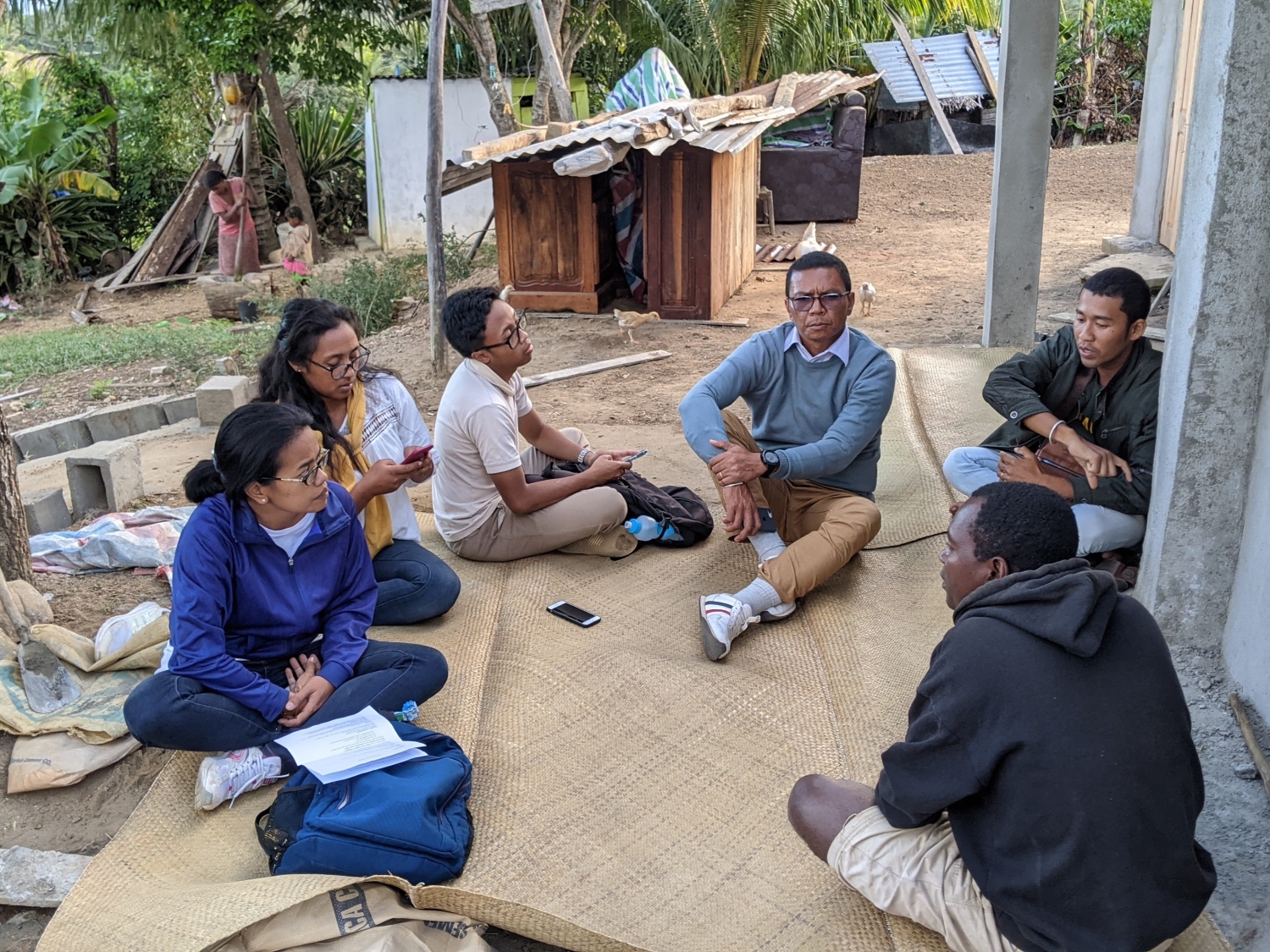
Unfortunately, these challenges could intensify over the coming years. Madagascar's population is projected to double by 2040, and the nation ranks amongst the most vulnerable to the threats of climate change. A concerted national effort is urgently required to stop ongoing deforestation and initiate large-scale land restoration.
Madagascar is still struggling to change course and truly appreciate the value of its land in a manner that provides a sustainable income for local people, while preserving its rich biodiversity. Many well-intentioned organisations are involved, but often operate in isolation, rendering them collectively incapable of reversing the current destructive trend.
So far, there have been limited efforts to meaningfully engage the private sector, despite its pivotal role in the face of erratic governance and insufficient public finances. Many Malagasy private companies express a willingness to contribute to biodiversity protection and landscape restoration efforts, but face obstacles in finding the appropriate framework for effective action.
"With the right policy framework and incentives, these lands could offer significant opportunities for restoring landscapes and improving livelihoods."
Opportunities for meaningful private sector action are plentiful. The challenges include finding viable alternatives to charcoal, building agriculture supply chains that truly support conservation, and boosting protected areas through ecotourism.
Remarkably, a large portion of the country's arable land remains abandoned, primarily due to land tenure disputes, inadequate infrastructure, and various other barriers. With the right policy framework and incentives, these lands could offer significant opportunities for restoring landscapes and improving livelihoods. Several successful agro-ecological supply chain models that support biodiversity conservation already exist in the country and can be expanded. This is especially fitting given the strong global demand for products such as vanilla and cacao. Scaling up these models must become a top priority. Madagascar is one of only six countries in the world where reforestation and forest protection could yield the most significant impact and profit.
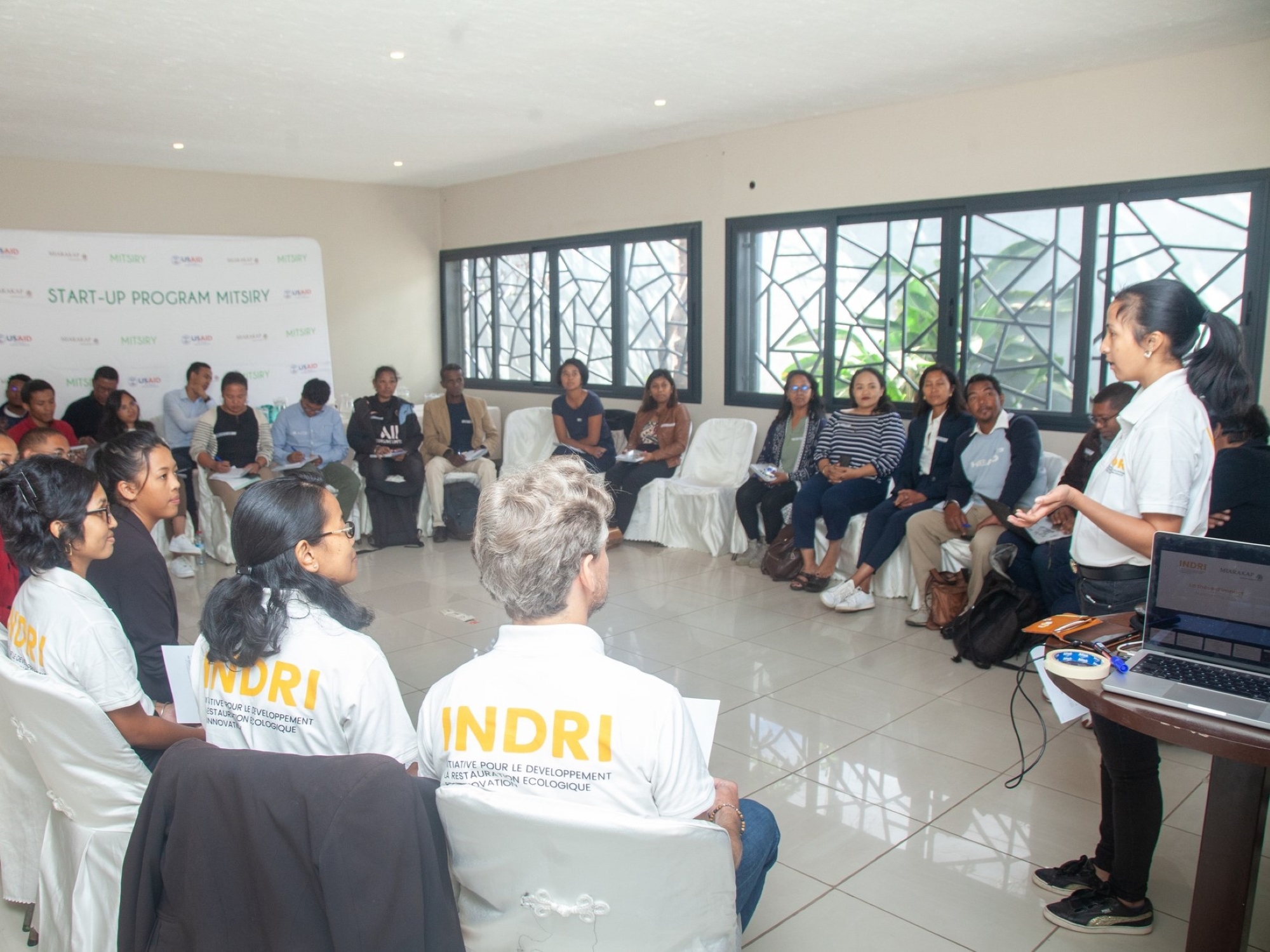
As part of the Banjinala initiative, INDRI cultivates a more collaborative and intelligent approach to engage the private sector in efforts to safeguard and rehabilitate Madagascar's terrestrial landscapes. This approach is rooted in the principles of collective intelligence, which have demonstrated their efficacy in addressing complex challenges in various countries. INDRI's role is two-fold: first, ensure that the private sector is fully integrated in all our national level strategy setting and advocacy efforts; and second, provide training and capacity building to private companies that have an explicit goal of supporting nature conservation.
Up to this point, we have supported several private companies in crafting their environmental and social impact strategies. We provided on-the-ground assistance to Senteurs Saveurs de Madagascar (SSM-Ilanga Nature), a honey production and export firm located in the Anosy region. Although they possessed expertise in honey processing and export, their environmental and social impacts were not tangible. Following our guidance, SSM-Ilanga Nature now collaborate with professional biodiversity conservation organisations like the NGO Asity Madagascar, a member of the Alamino initiative which is coordinated by INDRI, and the company TBSE, a member of the Banjinala initiative. Together, they aim to enhance living conditions for the local population and ensure the preservation of protected areas in the region.
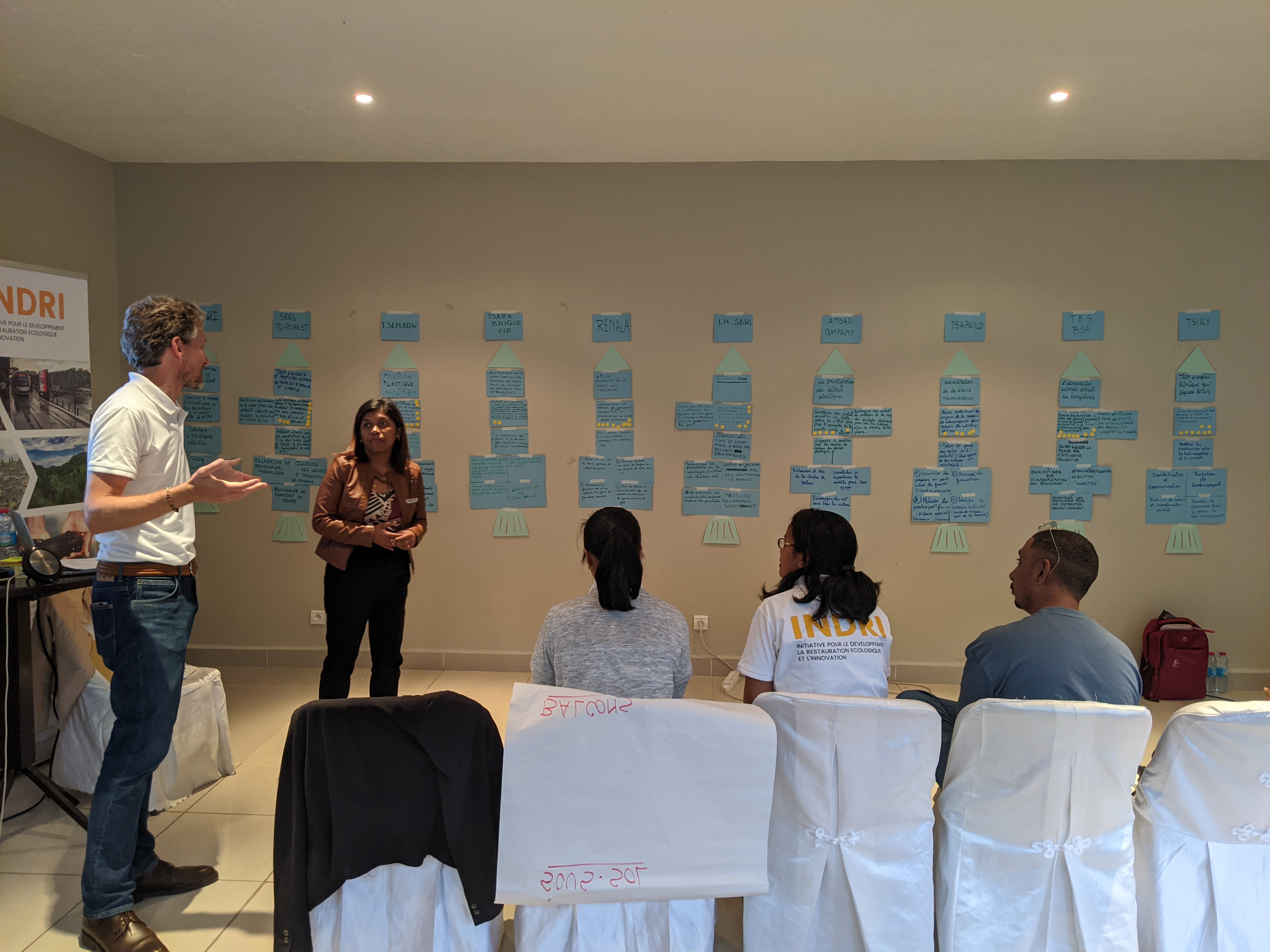
"I am excited that we were able to facilitate connections between the honey company Ilanga and stakeholders in Fort-Dauphin, enabling them to collaborate, which is the core mission of INDRI. Being in the forest together with Ilanga and the local conservation groups was a bonding and fertile moment for everyone. They were previously unacquainted until INDRI brought them together, but now they have started a strong partnership. These moments made me feel useful and alive!" expressed Linjasoa Rakotomalala, Technical Advisor for Forests at INDRI. "Additionally, I was proud to see INDRI's 10 principles for successful reforestation in Madagascar displayed in the offices of local conservation groups. It shows the dissemination of our work but also the adherence and implementation of these principles on the ground."
In addition, we have just launched a partnership with Miarakap, an investment fund supporting impact SMEs and start-ups from various regions of Madagascar. As part of that, we are currently supporting 10 startup companies, challenging their impact claims, pushing them towards stronger ambitions and measurable targets, and ensuring their businesses have a positive impact on local communities and biodiversity conservation. We help them through dynamic collective intelligence exercises that help them refine their mission, identify their unique advantages for impact, and define the primary pillars of action that lead to tangible results. These startups are focused on projects such as producing smokeless organic waste charcoal, eco-friendly bricks, natural fertilisers and pesticides, solutions to combat plastic pollution, and alternatives to tavy (slash-and-burn agriculture). All 10 companies have also become active members in the aforementioned Alamino; the nationwide initiative for terrestrial landscape protection and restoration that INDRI have coordinated since 2020.
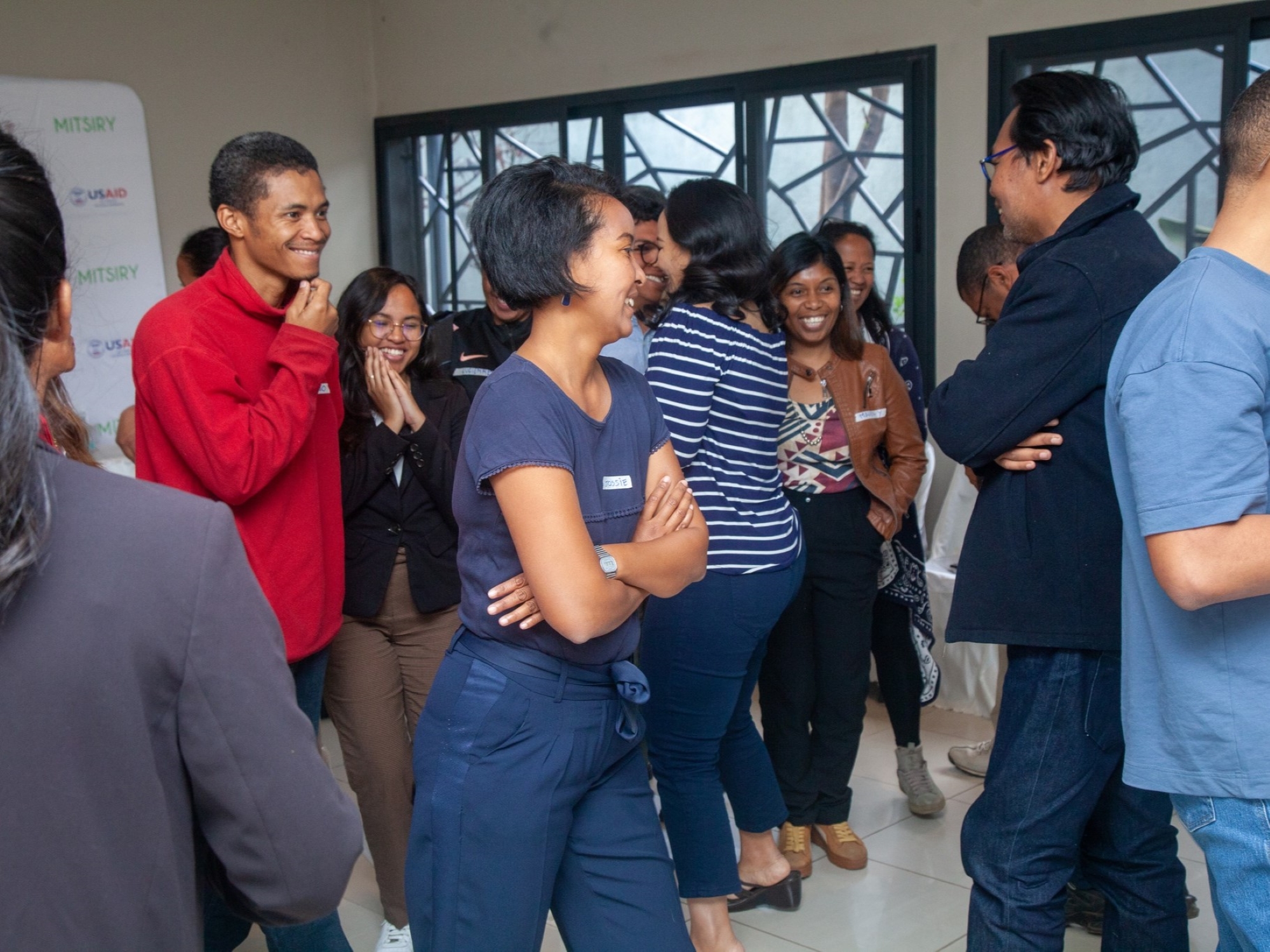
Such progress is exciting, but these are only the first steps. Thanks to the Darwin Initiative we are now preparing several more steps of the Banjinala Initiative. One of them will be to lead the development of a national strategy to maximise the contribution of the private sector to biodiversity conservation, and advocate for its implementation across the country.
Written by the Initiative for Development, Ecological Restoration and Innovation (INDRI). For more information on this Darwin Initiative Innovation project DARNV012, led by INDRI, please click here.
 Back
Back